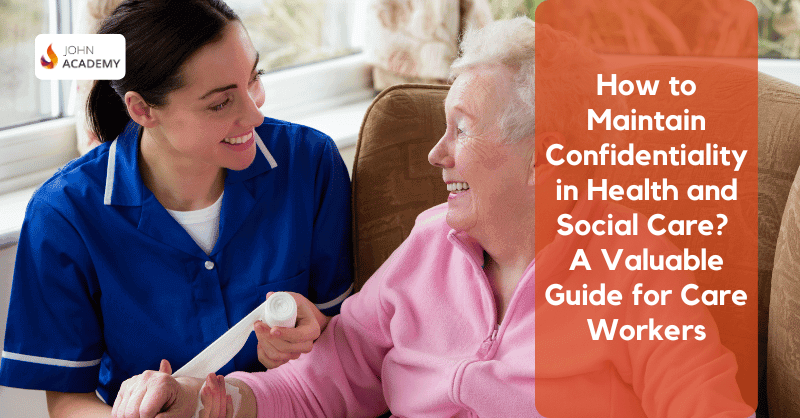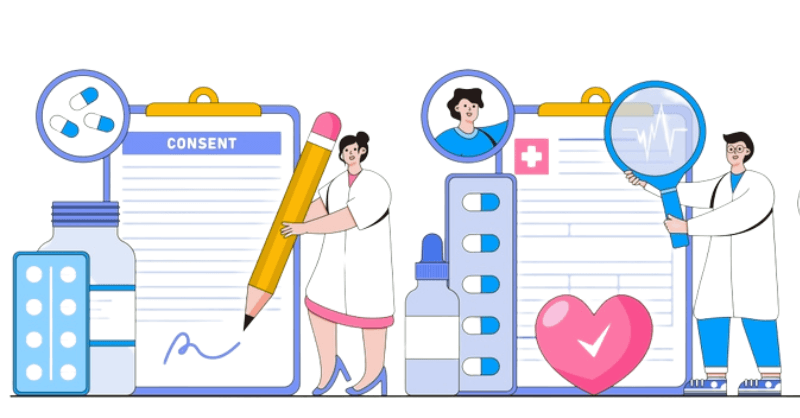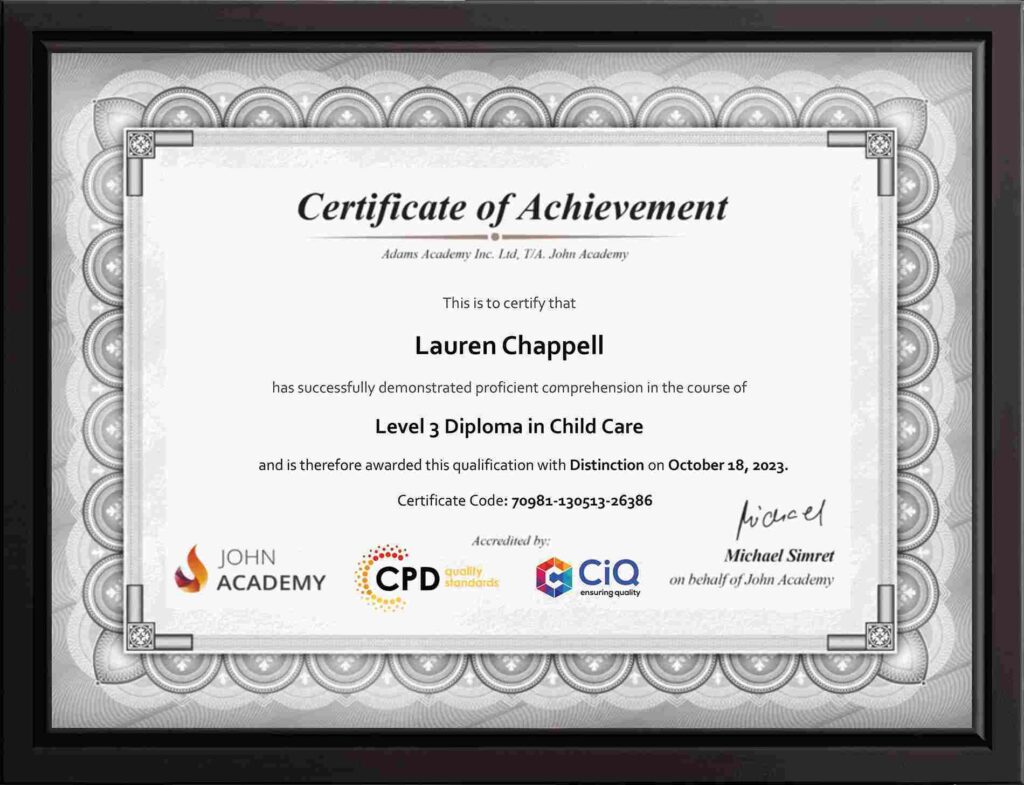
Seven Technologies for Small Businesses to Improve Workflow and Propel Customer Service
Sooner or later, every small business understands that business goals require more than just Excel spreadsheets and business email. Effective

The freedom to keep your personal information private is a basic human right, as is confidentiality in health and social care!
It is your choice if you want to share your information with the world or keep it secret. Thus, it is the duty of every organisation to protect the privacy of all. It is the same for social and healthcare as well. In fact, for health and social, it is mandatory.
Understanding confidentiality in health and social care is important. It’s not just for the service holder but also for the service provider. So, it’s important that you get a clear understanding of this area. You can start gathering your knowledge with this blog. It will introduce you to the basics of confidentiality in health and social care. It will help explore the different aspects of maintaining confidentiality.
The term confidentiality in the health and social care sector refers to keeping the personal information of the service receiver private. The professionals working in the health and social care sector are not supposed to share any personal information of those receiving care from them except when they give permission.
Maintaining confidentiality is a part of quality care service. The practitioners are not allowed to disclose any personal information. This personal information includes –
Those working in health and social care must understand when to maintain confidentiality. And also when to break confidentiality. It is important that they are able to understand the situation and take action accordingly.
So, here are some examples to better understand confidentiality.
Personal details should be kept private. These details include name, address, bank address, age, etc. The information can only be shared with authorised individuals through proper channels following protocol.
It is important to protect information as people with the wrong intentions may try to misuse them. For example, someone asks you for one of your service receivers’ address. But you are only allowed to share the information with this individual with authorisation. So, unless they have permission, let them know you are unable to share the information. Also, inform them that sharing personal information is against the law.
The health details shared by the service receiver should stay confidential. Doctors and other health professionals can learn the information. However, sharing information with those who are not part of the service team is not allowed. For example, you can’t give information about one patient’s health to another.

Confidentiality is very important in health and social care. It plays a significant part in building trust between the service provider and the receiver. When the patient trusts you, they tend to open up without hesitating.
If there is a strong bond of trust, the care receiver will share intimate details. For example, medical history or the problems they are dealing with. This plays a significant role in understanding the context. Thus, it helps identify the issues of the service receiver. As a result, the service provider can design their treatment.
Also, it helps in giving other support according to the needs of the service receiver. When you maintain confidentiality, you can prevent immoral or illegal use of information.
Confidentiality protects the service receiver from different kinds of threats. For example, identity theft, financial scams, etc. Moreover, the service receiver’s reputation does not fall under any risk.
Along with safety reasons, maintaining confidentiality is also important for compliance. According to the law, maintaining confidentiality in health and social care is mandatory. So, you must maintain confidentiality to avoid legal complications.
Suppose you are found guilty of disclosing information or exploiting it. You will have to face punishment. The punishment will be according to the law of your organisation. If you or your organisation fails to protect data, which results in severe consequences for the service receiver, they can sue you. So, care providers need to follow confidentiality regulations strictly.
In the health and social care sector, there are five principles you must follow. The HSCIC Guide to Confidentiality 2013 demonstrates these principles. It also includes how to handle vulnerable information safely .
Here are the five principles of confidentiality –
Let’s learn more about these five rules of confidentiality.
When professionals deal with information, it should be done with confidentiality and respect. If any practitioner is found guilty of disclosing information publicly and misusing it for gain, then legal steps can be taken against them.
If it is required to provide effective and safe care, you have to share information with other team members. This team may include doctors, nurses, care workers and social workers.
There might be some information about the condition or health details that can benefit research work. This information may be valuable for the betterment of others. Information can be shared in these kinds of cases. However, it should be done anonymously and with the permission of the service user.
A service receiver has the right to object to disclosing their information. If they do, you are obliged to follow their wish. However, a practitioner can break this rule if it is important to protect the client.
It is the organisation’s responsibility to take the essential measures required to maintain confidentiality. They should develop proper rules and regulations and design employee training.
Maintaining confidentiality is one of the main requirements for providing quality care. Here are some guidelines. These will assist in maintaining conditionality in health and social care settings.
If you know the rules and regulations, you can follow them properly. So, learn the legal framework designed by the government and organisations.
Share information with only those who need to know. To provide proper care, it is important to share information. When you disclose such information, make sure to limit access to only those who are relevant.
Whether you are the employer or the employee, receiving training on confidentiality can be advantageous. So, organising training sessions will help in strictly maintaining confidentiality.
Sometimes, you may feel unsure about the significance of sharing information with others. In these times, reach out to your supervisor or appropriate authority.
Suppose you find a violation of confidentiality or identify any risks that may lead to an information security threat. If you do, inform the appropriate people. It will allow them to take the essential steps to handle the situation.
In order to protect the information, securing the documentation is important. Keep all the forms and other written documents in a secure place. Besides, make sure that only authorised professionals can access these documents.
Clearly communicating the consequences of confidentiality is important. It should be explained to both health and social care workers and organisations. It will also help them judge the situation before taking a step.
Nowadays, most of the information is stored digitally. Thus, it is important to protect computers and other technologies with passwords. Only authorised people should have access to the password.
Conducting regular audits and risk assessments can also play a significant role. It will help identify any breaches of confidentiality by the staff. Moreover, regular assessments will also assist in taking proper measures to ensure confidentiality.
In order to ensure organisations and professionals maintain confidentiality, some policies were developed. It is mandatory for health and social care providers to abide by these rules and regulations. Here is a brief description of the laws established for securing information.

The Common Law of Confidentiality may not be designed for health and social care, but it does cover it. This law encourages people to come forward with their problems. It allows them to open up without fearing a violation of their privacy. However, the professional can disclose the information if they identify any risk or concerns about the safety and well-being of the service taker.
The Human Rights Act 1998 allows everyone to keep their personal and family lives private. Each individual has the right to conceal their personal information. However, this law can be overridden if sharing information is mandatory. And it can have severe consequences if not disclosed.
The Care Act 2014 allows the service provider to disclose private information that can put the service receiver at risk. The service provider can share information without any hesitation. This law was developed to safeguard and protect vulnerable individuals.
It is important to take permission from the person. But if the information is concerning, you can disclose it even if you do not get permission. In this situation, breaking the confidentiality code without permission is allowed.
The Health and Social Care (Safety and Quality) Act 2015 provides the caregiver and other professionals the right to discuss information with another professional. Sometimes, nurses, doctors or social workers may need advice or consulting.
Seeking advice from others helps to provide adequate care. Thus, if a professional feels the need to disclose information for the betterment of the patient, they will not have to worry about breaking the law.
The Data Protection Act & GDPR 2018 established the rules for organisations and charities. These regulations are regarding collecting and using data. All the information collected by the care provider is protected under this act. According to this law, information must be collected and used in the following ways.
The situation of each service receiver is different. Thus, maintaining confidentiality strictly for all individuals may not be appropriate. Certain circumstances may require you to share information. It is to preserve the best interest of the service taker. In these situations, you can break confidentiality.
Sometimes, people may need to share private information about their relationships. The information can be about their personal relationships or family life. It falls under your duty to keep the information private. But, if you feel that you have to share the information as there are concerns, you can break the code.
For example, you provide service to a disabled individual. One day, you notice some bruises on their body. So you ask them what happened. In response, they say one of the family members has caused the bruises. Even though they tell you not to talk about it, you should inform the authorities and other family members. In this scenario, breaking confidentiality is important due to safety issues.
Sometimes, a care professional may feel unsafe or threatened by the actions of the service receiver. If they do, it is permissible to share information. For example, one of the service takers has tried to abuse you physically or verbally. In this case, you must inform the authorities about their actions.
In addition, legal issues may require you to disclose information about a patient. However, before you share information, you should consult with your legal advisor. For example, imagine you are providing care to a police suspect. The police ask for some personal details. Before you disclose them, talk to your legal advisor and your supervisor.
When it comes to maintaining confidentiality, there are some Dos and Don’ts you should follow. Following these will help you work along the guidelines.
Maintaining confidentiality in health and social care is more than a legal requirement. It helps in fostering trust between both parties and enables appropriate care. This is also essential to ensuring ethical practices in health and social care. Therefore, if you are a care worker or are willing to pursue a career in this sector, try your best to respect the privacy of others. Also, ensure no one is harmed due to your negligence in maintaining confidentiality.
Confidentiality in nursing means keeping your patient’s personal information secret. It means respecting their privacy and freedom to safeguard their personal information. It should be with the patient’s consent if it is important to share the information.
In health and social care, confidentiality is very important. Firstly, it helps in building trust. It creates a bridge between the service taker and the service provider. Secondly, it helps ensure the service receiver’s safety and security. Lastly, it is essential for avoiding complian
There are circumstances when you can break confidentiality. These circumstances are –
The patient’s medical records can be shared with other team members—the members who are working on the same patient. However, if you need to consult with other doctors or nurses to provide better care, it is permissible to share information.

Sooner or later, every small business understands that business goals require more than just Excel spreadsheets and business email. Effective

Companies and organizations across different sectors have recently adopted digital business operations. And with the current trends, more businesses embrace

Are you a university student overwhelmed by the mountain of assignments looming over you? Fret not! In this guide, we’ll

Cooking frozen food is not only a great time saver but an excellent way to minimise food waste while indulging

In recent years, the allure of photography as both a hobby and a professional endeavour has surged remarkably. For many,

Master Public Speaking: 8 Tips for Introverted Students Glossophobia is a common enough issue. Most people fear standing and speaking
No more than 50 active courses at any one time. Membership renews after 12 months. Cancel anytime from your account. Certain courses are not included. Can't be used in conjunction with any other offer.
